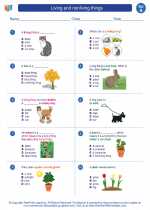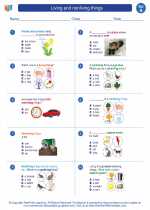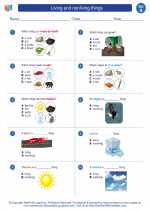Engineering
Engineering is the application of scientific and mathematical principles to design and build machines, structures, systems, and processes to solve real-world problems. It is a diverse field that encompasses various branches such as civil, mechanical, electrical, chemical, and computer engineering, among others.
Branches of Engineering
- Civil Engineering: Involves the design and construction of infrastructure such as bridges, roads, and buildings.
- Mechanical Engineering: Focuses on the design and development of mechanical systems and devices.
- Electrical Engineering: Deals with the study and application of electricity, electronics, and electromagnetism.
- Chemical Engineering: Concerned with the design and operation of industrial processes for the production of chemicals and related products.
- Computer Engineering: Involves the development of computer hardware and software systems.
Study Guide
If you are interested in learning more about engineering, here are some key topics to focus on:
- Mathematics: Develop a strong foundation in calculus, algebra, and trigonometry as these are essential for solving engineering problems.
- Physics: Gain a solid understanding of mechanics, thermodynamics, and electricity, as these principles form the basis of many engineering applications.
- Design and Innovation: Explore the process of designing and innovating new solutions to engineering challenges, including prototyping and testing.
- Materials Science: Learn about the properties and behavior of various materials used in engineering, such as metals, polymers, and composites.
- Computer-Aided Design (CAD): Familiarize yourself with CAD software tools for creating and analyzing designs in a virtual environment.
- Professional Ethics: Understand the ethical considerations and responsibilities of engineers in ensuring the safety and well-being of society.
By studying these topics and exploring hands-on projects, you can gain a deeper understanding of the exciting world of engineering and its potential to make a positive impact on the world.
[Engineering] Related Worksheets and Study Guides:
.◂Science Worksheets and Study Guides First Grade. Living and nonliving things
Study Guide Living and nonliving things
Living and nonliving things  Activity Lesson
Activity Lesson Living & Non-living Things
Living & Non-living Things  Worksheet/Answer key
Worksheet/Answer key Living and nonliving things
Living and nonliving things  Worksheet/Answer key
Worksheet/Answer key Living and nonliving things
Living and nonliving things  Worksheet/Answer key
Worksheet/Answer key Living and nonliving things
Living and nonliving things  Worksheet/Answer key
Worksheet/Answer key Living and nonliving things
Living and nonliving things  Vocabulary/Answer key
Vocabulary/Answer key Living and nonliving things
Living and nonliving things 

 Activity Lesson
Activity Lesson
 Worksheet/Answer key
Worksheet/Answer key
 Worksheet/Answer key
Worksheet/Answer key
 Worksheet/Answer key
Worksheet/Answer key
 Worksheet/Answer key
Worksheet/Answer key
 Vocabulary/Answer key
Vocabulary/Answer key

The resources above cover the following skills:
Concepts of Life Science (SC1, SC2, SC3)
The student demonstrates an understanding that all organisms are linked to each other and their physical environments through the transfer and transformation of matter and energy by identifying and sorting examples of living and non-living things in the local environment. (L)